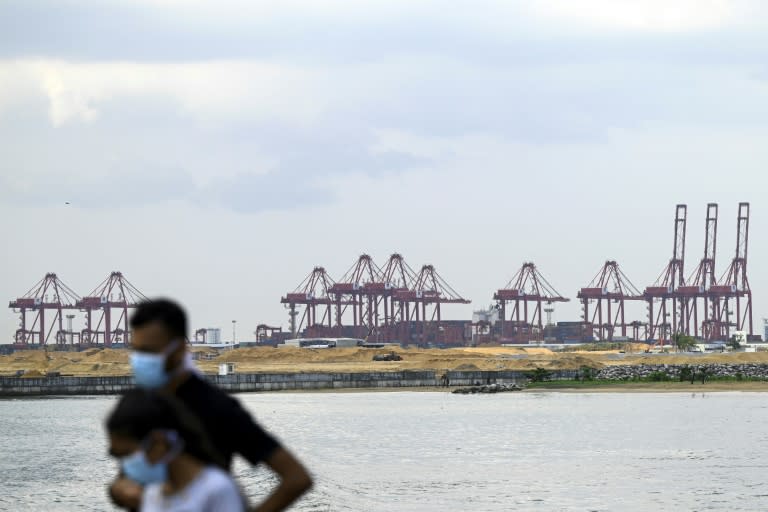Sri Lanka said on Tuesday it had given up on an agreement with Japan and India to develop a container terminal on the high seas seen as an effort to contain China’s growing influence in the region.
The East Container Terminal at the port of Colombo is being built next to a controversial $ 500 million container pier run by Chinese and should be developed as a joint venture – with India and Japan owning 49 percent.
But the government has faced opposition in recent weeks from hard coalition nationalists in its coalition, who are against selling national assets to foreigners.
The offshore pier agreement was signed in May 2019, a few months before President Gotabaya Rajapaksa came to power.
The government said in a statement that it would instead develop the site “as a wholly owned container terminal for the Sri Lanka Port Authority” for $ 800 million.
The decision marks a turnaround from Rajapaksa’s statement more than two weeks ago, when he said the project would move forward, citing “regional geopolitical concerns”.
It also came a day after the Indian High Commission in Colombo asked the government to honor its obligations under the agreement.
When Mahinda, brother of Gotabaya Rajapaksa – who is now prime minister – was president between 2005 and 2015, Colombo borrowed billions from China, accumulating a mountain of debt for a series of infrastructure projects.
With credit agencies reducing Sri Lanka’s debt ratings while the island nation suffers from the economic impact of its pandemic blockades and the deadly Easter attacks of 2019, the government expects more Chinese loans this year.
In December 2017, unable to repay a huge Chinese loan, Sri Lanka allowed China Merchants Port Holdings to take control of the port of Hambantota, which covers the world’s busiest east-west shipping route.
The deal, which gave the Chinese company a 99-year lease, raised concerns at home and abroad.
India and the United States are concerned that a Chinese position in Hambantota will give Beijing a military advantage in the Indian Ocean.
India protested when Chinese submarines made unannounced visits to the Colombo terminal in 2014. Since then, Sri Lanka has not given permission for new submarine calls.
aj / grk / am
Originally published
